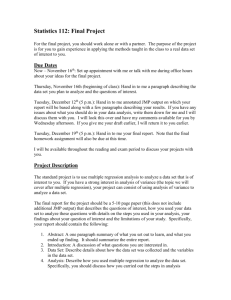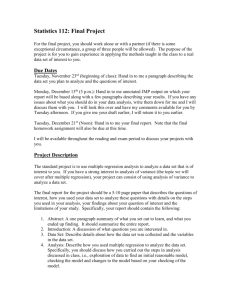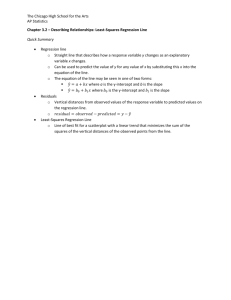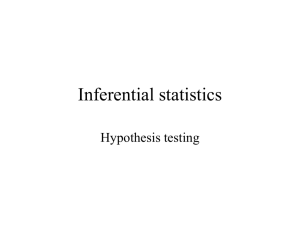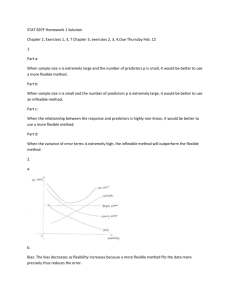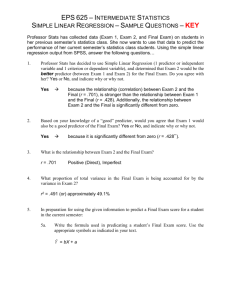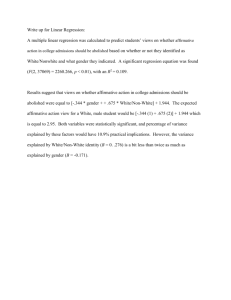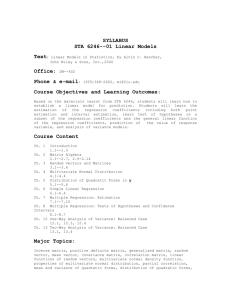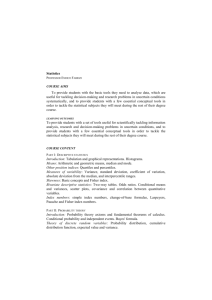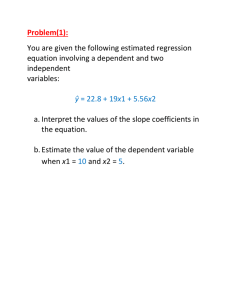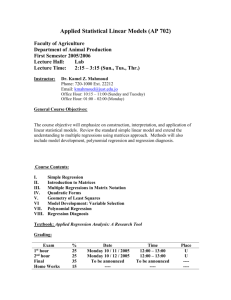Module 9
advertisement
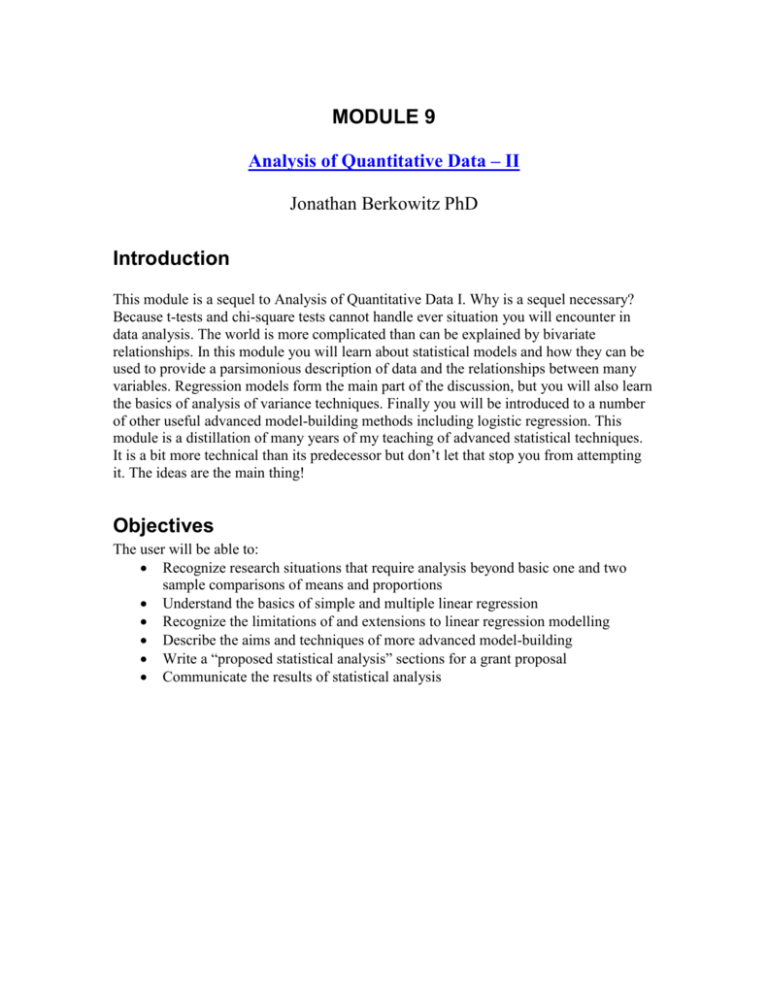
MODULE 9 Analysis of Quantitative Data – II Jonathan Berkowitz PhD Introduction This module is a sequel to Analysis of Quantitative Data I. Why is a sequel necessary? Because t-tests and chi-square tests cannot handle ever situation you will encounter in data analysis. The world is more complicated than can be explained by bivariate relationships. In this module you will learn about statistical models and how they can be used to provide a parsimonious description of data and the relationships between many variables. Regression models form the main part of the discussion, but you will also learn the basics of analysis of variance techniques. Finally you will be introduced to a number of other useful advanced model-building methods including logistic regression. This module is a distillation of many years of my teaching of advanced statistical techniques. It is a bit more technical than its predecessor but don’t let that stop you from attempting it. The ideas are the main thing! Objectives The user will be able to: Recognize research situations that require analysis beyond basic one and two sample comparisons of means and proportions Understand the basics of simple and multiple linear regression Recognize the limitations of and extensions to linear regression modelling Describe the aims and techniques of more advanced model-building Write a “proposed statistical analysis” sections for a grant proposal Communicate the results of statistical analysis Key Concepts Statistical models Correlation Least squares and the simple linear regression model Analysis of variance for regression Multiple linear regression Indicator variables One-way analysis of variance Two-way analysis of variance Repeated measures analysis of variance Logistic regression Factor analysis Activities Make up a spreadsheet with either real or made-up data Run simple descriptive statistics in Excel Run a basic statistical test on your main outcome variable Quicklinks EpiInfo o Download o Tutorials Excel Tutorials o General o Statistical Functions Task Checklist Table of your data with descriptive statistics Output of your statistical analysis of the main outcome variable
